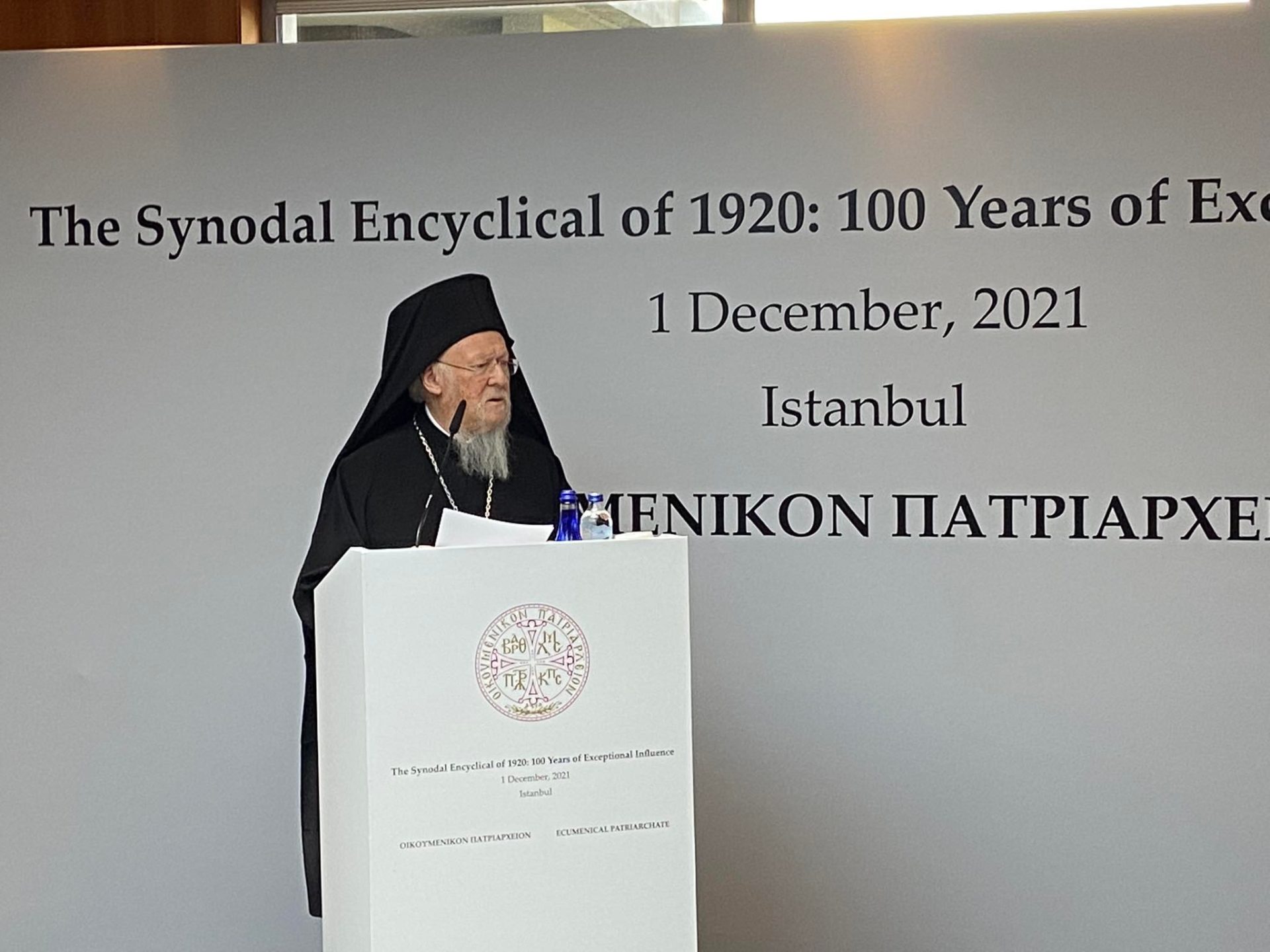 Under the title “The Synodal Encyclical of 1920: 100 Years of Exceptional Influence,” the Ecumenical Patriarchate celebrated, on 1 December 2021, one of the most important ecumenical documents of the 20th century. The conference was originally scheduled to take place last year, on the 100th anniversary of the publication of the Encyclical but was postponed due to severe restrictive measures against the pandemic.
Under the title “The Synodal Encyclical of 1920: 100 Years of Exceptional Influence,” the Ecumenical Patriarchate celebrated, on 1 December 2021, one of the most important ecumenical documents of the 20th century. The conference was originally scheduled to take place last year, on the 100th anniversary of the publication of the Encyclical but was postponed due to severe restrictive measures against the pandemic.
A few years before his death, Dr Willem Visser ‘t Hooft, the first general secretary of the World Council of Churches (WCC), had dedicated the first chapter of his book “The Genesis and Formation of the World Council of Churches” to this historical document, recognizing its foundational character in the history of the WCC.
The opening session was attended by the Patriarch of the Armenians in Turkey, representatives of the Pontifical Council of Christian Unity, the acting general secretary of the WCC, the president of the Conference of European Churches, hierarchs of the Ecumenical Patriarchate and the Churches of Cyprus and Greece, diplomats and official guests.
In his opening speech, His All-Holiness Ecumenical Patriarch Bartholomew characterized the Encyclical as an axial text in the history of the ecumenical movement. He particularly insisted on the fact that the Encyclical was drafted by members of the faculty of the Theological School of Halki, expressing therefore the “spirit of Halki,” whose main characteristics were openness to the world and confidence in the power of dialogue. Unfortunately, the School of Halki has been closed for five decades and it is certain that the suspension of the school also affected the course of the ecumenical movement.
Continue reading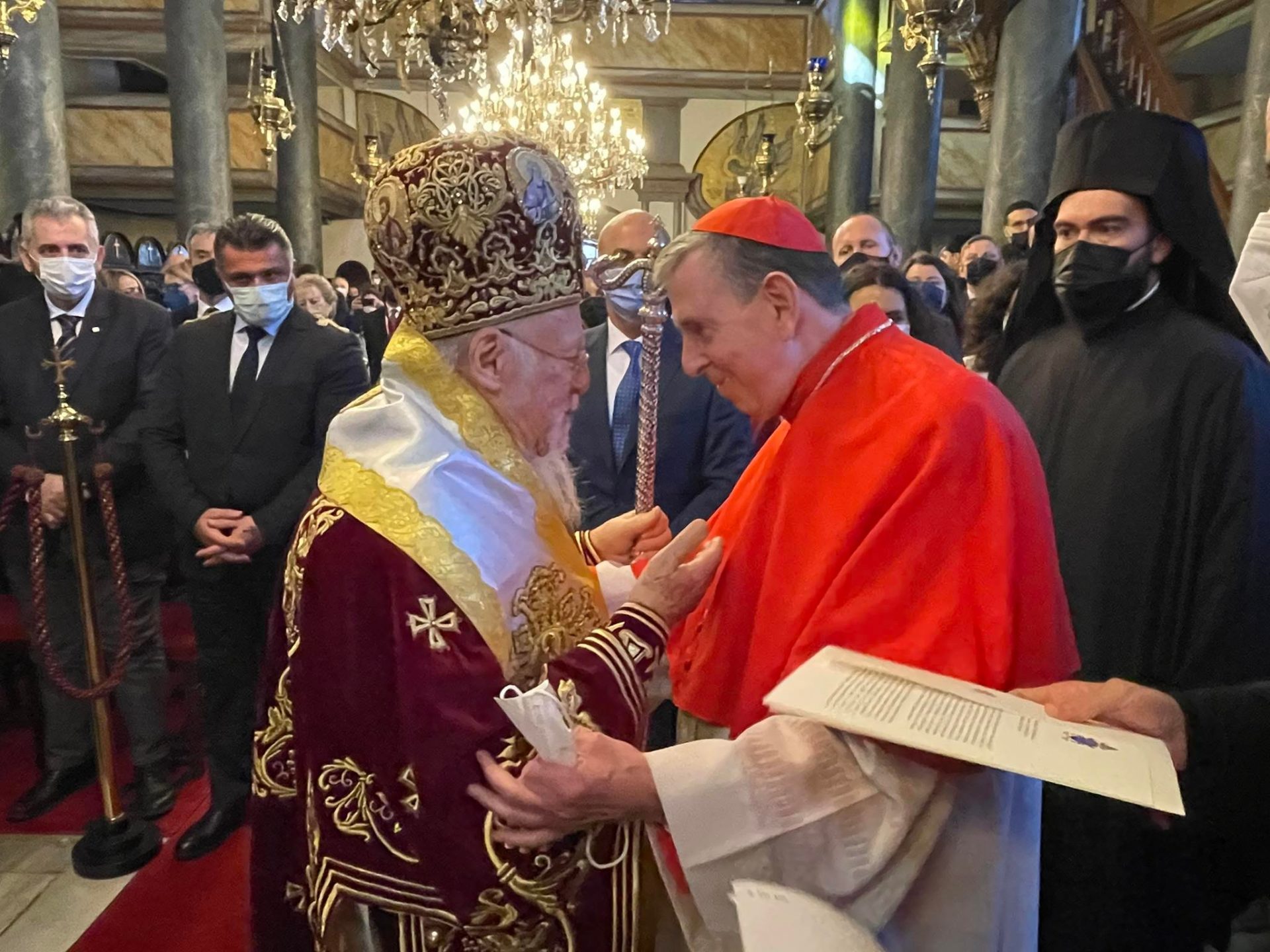 The Ecumenical Patriarchate honored the memory of its founder, the Holy Apostle Andrew the First-Called. On Tuesday 30 November 2021, a solemn Divine Liturgy was presided by His All-Holiness Ecumenical Patriarch Bartholomew in concelebration with their Eminences the Senior Metropolitans Emmanuel of Chalcedon and Dimitrios of the Princes Islands, and the Metropolitans Nektarios of Anthedon (Representative of the Patriarchate of Jerusalem), Vasilios of Constantia and Ammochostos (representing the Church of Cyprus), Meliton of Philadelphia, Seraphim of Sevasteia, Irinaios of Myriophytos and Peristasis, Chrysostomos of Myra, Naum of Rousse (Church of Bulgaria) and Amphilochios of Adrianople in the Patriarchal Church of St. George, at the Phanar. With them concelebrated as well the Rev. Prof. Dr Ioan Sauca, acting general secretary of the World Council of Churches (from the Church of Romania). The homily was preached by His Eminence Metropolitan Kyrillos of Rhodes.
The Ecumenical Patriarchate honored the memory of its founder, the Holy Apostle Andrew the First-Called. On Tuesday 30 November 2021, a solemn Divine Liturgy was presided by His All-Holiness Ecumenical Patriarch Bartholomew in concelebration with their Eminences the Senior Metropolitans Emmanuel of Chalcedon and Dimitrios of the Princes Islands, and the Metropolitans Nektarios of Anthedon (Representative of the Patriarchate of Jerusalem), Vasilios of Constantia and Ammochostos (representing the Church of Cyprus), Meliton of Philadelphia, Seraphim of Sevasteia, Irinaios of Myriophytos and Peristasis, Chrysostomos of Myra, Naum of Rousse (Church of Bulgaria) and Amphilochios of Adrianople in the Patriarchal Church of St. George, at the Phanar. With them concelebrated as well the Rev. Prof. Dr Ioan Sauca, acting general secretary of the World Council of Churches (from the Church of Romania). The homily was preached by His Eminence Metropolitan Kyrillos of Rhodes. Τhe Center of Ecumenical Missiological and Environmental Studies “Metropolitan Panteleimon Papageorgiou” (CEMES), a foundation working with the blessing of His All-Holiness the Ecumenical Patriarch Bartholomew, who also inaugurated its offices at St. Theodora Monastery of Thessaloniki in 2013, is participating in the EU funded project PROSECUW (Protection and Security of Places of Worship, ISFP 2020-AG-PROTECT- Project Number: 101034232) and is working together with similar academic foundations from Cyprus, Germany and Portugal. A summary of this pioneering project is the following:
Τhe Center of Ecumenical Missiological and Environmental Studies “Metropolitan Panteleimon Papageorgiou” (CEMES), a foundation working with the blessing of His All-Holiness the Ecumenical Patriarch Bartholomew, who also inaugurated its offices at St. Theodora Monastery of Thessaloniki in 2013, is participating in the EU funded project PROSECUW (Protection and Security of Places of Worship, ISFP 2020-AG-PROTECT- Project Number: 101034232) and is working together with similar academic foundations from Cyprus, Germany and Portugal. A summary of this pioneering project is the following: 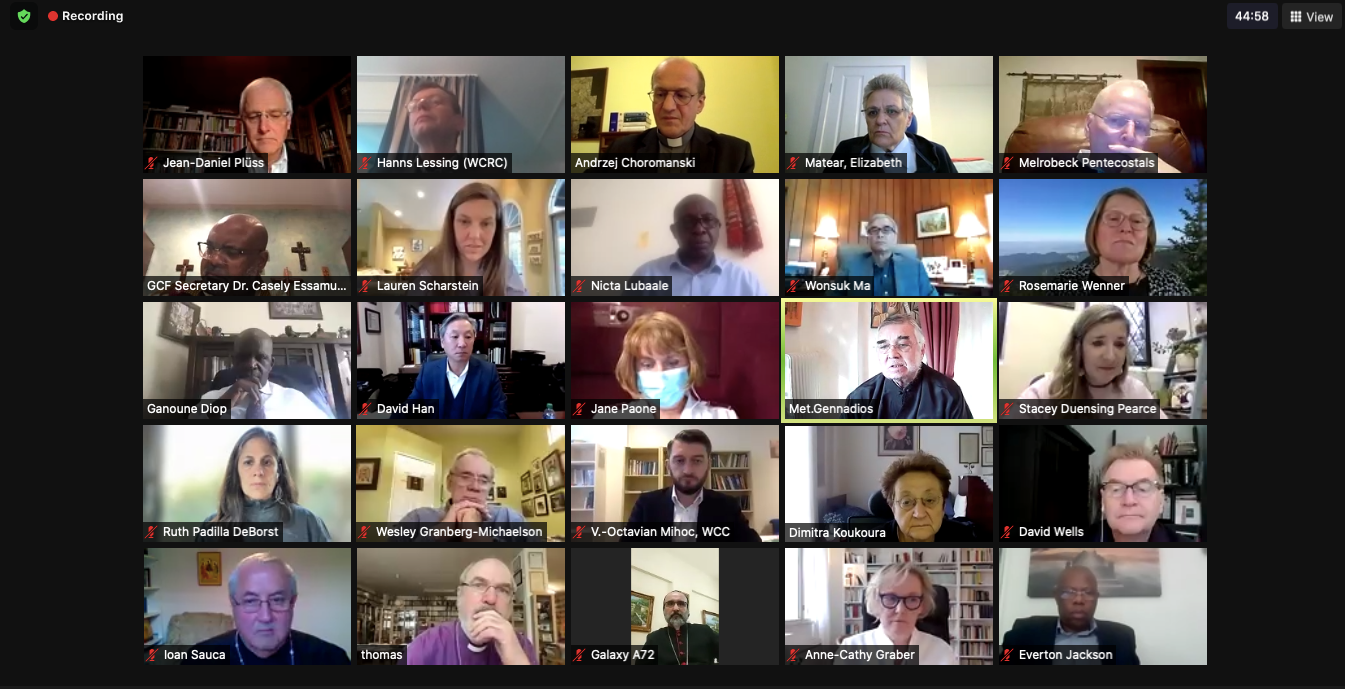 The Global Christian Forum’s International Committee met virtually on 26 October 2021. Participants joined the meeting from around the world to reflect on places they find hope and to plan for the next Global Gathering which will take place in 2024. One participant shared that he finds hope in the resurrection which assures us that evil does not have the final word; the final word belongs to God. The Committee unanimously confirmed that we will have the fourth Global Gathering the week of 15-19 April, 2024.
The Global Christian Forum’s International Committee met virtually on 26 October 2021. Participants joined the meeting from around the world to reflect on places they find hope and to plan for the next Global Gathering which will take place in 2024. One participant shared that he finds hope in the resurrection which assures us that evil does not have the final word; the final word belongs to God. The Committee unanimously confirmed that we will have the fourth Global Gathering the week of 15-19 April, 2024.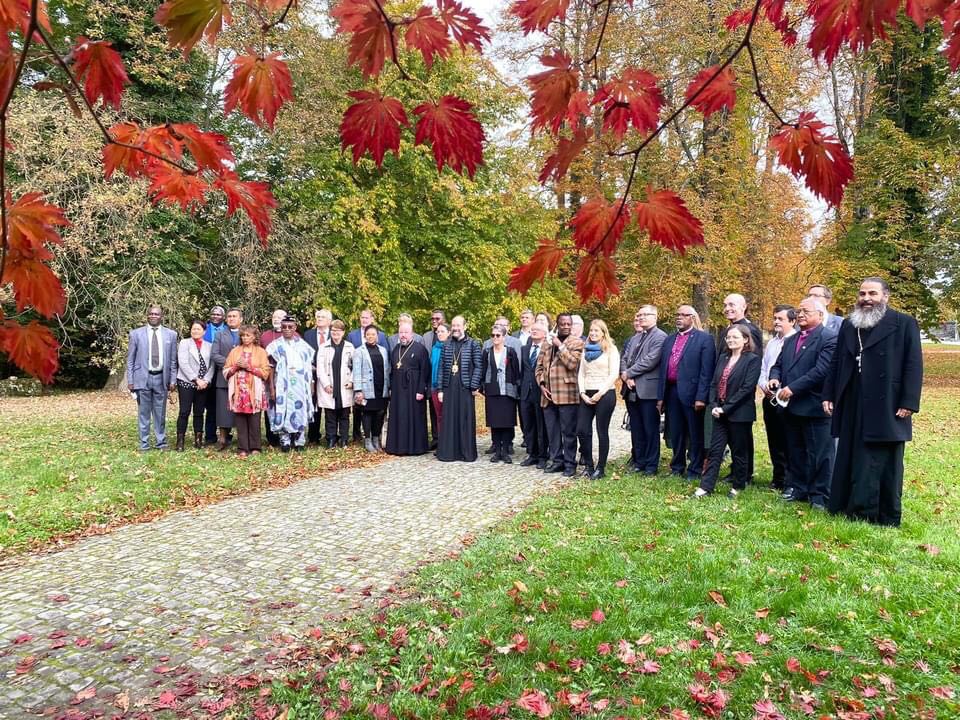 Nearly 60 ecumenical officers convened on 25-28 October 2021 at the Ecumenical Institute at Château de Bossey near Geneva, focusing on plans for the World Council of Churches (WCC) 11th Assembly in 2022 and its theme, “Christ ́s love moves the world to reconciliation and unity.” This gathering was the ecumenical officers’ largest in the lead-up to the assembly.
Nearly 60 ecumenical officers convened on 25-28 October 2021 at the Ecumenical Institute at Château de Bossey near Geneva, focusing on plans for the World Council of Churches (WCC) 11th Assembly in 2022 and its theme, “Christ ́s love moves the world to reconciliation and unity.” This gathering was the ecumenical officers’ largest in the lead-up to the assembly.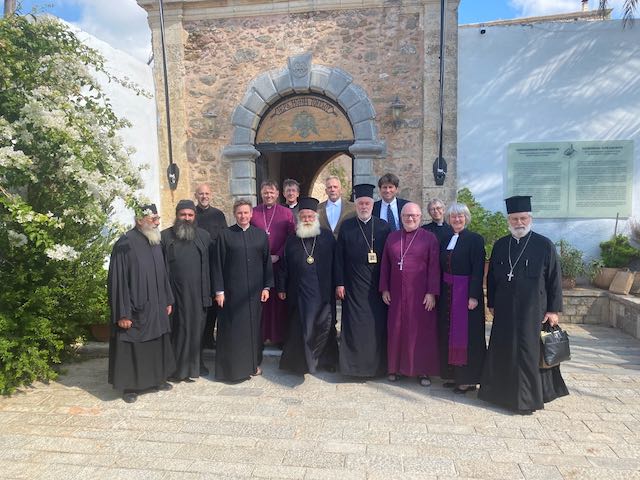 After a two-year hiatus, the Drafting Committee of the International Commission for the Anglican–Orthodox Theological Dialogue met between 18 and 23 October 2021 in Hierapetra on the island of Crete (Greece).
After a two-year hiatus, the Drafting Committee of the International Commission for the Anglican–Orthodox Theological Dialogue met between 18 and 23 October 2021 in Hierapetra on the island of Crete (Greece). An Extraordinary Meeting of the Forum of the Orthodox Churches in Europe was held via Zoom Call on Wednesday, 15th of September 2021, in the context of the Forum of Dialogue between the Orthodox Churches in Europe and the Council of European Bishops’ Conferences of the Roman Catholic Church (CCEE). Despite the fact that this Meeting was jointly decided since last January, the very busy program of the CCEE, with several international conferences scheduled for the month of September, as well as the election of its new President, made impossible the participation of the Roman Catholic delegation. Nevertheless, the Orthodox delegates decided to meet among themselves and to benefit from this unique opportunity of fellowship and fraternal discussion. The Meeting, which was chaired by H.E. Metropolitan Prof. Dr. Gennadios of Sassima (Ecumenical Patriarchate), Orthodox Co-President of the Forum, dealt with the following timely theme, necessitated by the coronavirus crisis: Covid-19: The Society’s Experience and the Role of the European Churches Today.
An Extraordinary Meeting of the Forum of the Orthodox Churches in Europe was held via Zoom Call on Wednesday, 15th of September 2021, in the context of the Forum of Dialogue between the Orthodox Churches in Europe and the Council of European Bishops’ Conferences of the Roman Catholic Church (CCEE). Despite the fact that this Meeting was jointly decided since last January, the very busy program of the CCEE, with several international conferences scheduled for the month of September, as well as the election of its new President, made impossible the participation of the Roman Catholic delegation. Nevertheless, the Orthodox delegates decided to meet among themselves and to benefit from this unique opportunity of fellowship and fraternal discussion. The Meeting, which was chaired by H.E. Metropolitan Prof. Dr. Gennadios of Sassima (Ecumenical Patriarchate), Orthodox Co-President of the Forum, dealt with the following timely theme, necessitated by the coronavirus crisis: Covid-19: The Society’s Experience and the Role of the European Churches Today. 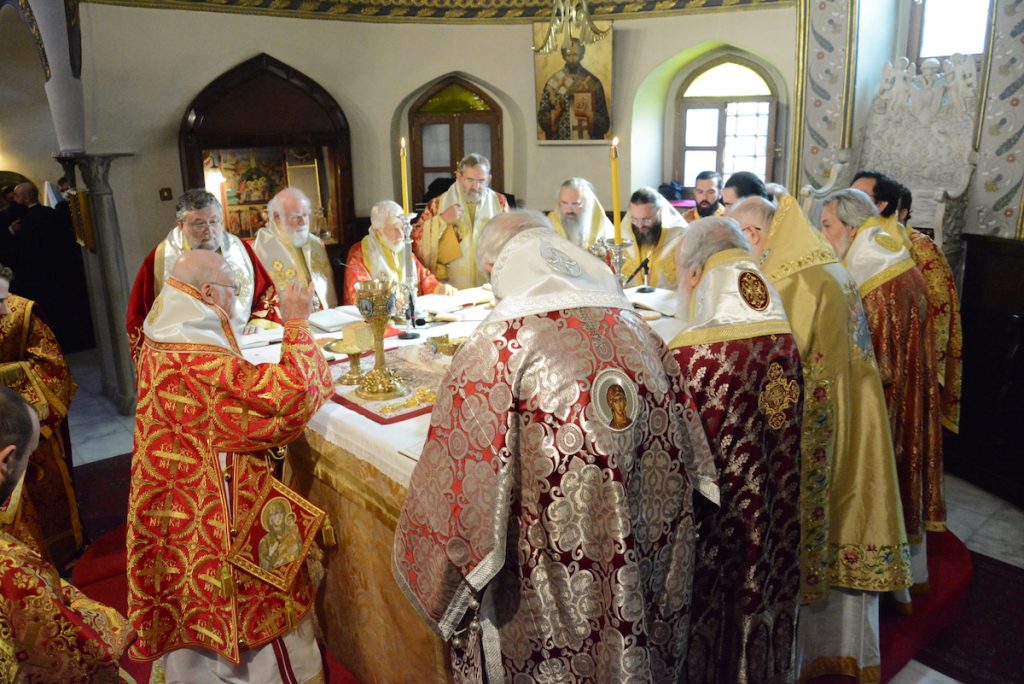 His All-Holiness Ecumenical Patriarch Bartholomew celebrated on 22 October 2021 the Divine Liturgy on the occasion of the 30th anniversary of his election to the Apostolic and Patriarchal Ecumenical Throne, in concelebration with their Eminences Metropolitans Elders Emmanuel of Chalcedon and Dimitrios of the Princes’ Islands, the Metropolitans Dimitrios of Metres and Athyra, Alexios of Atlanta, Joseph of Proikonnisos, Meliton of Philadelphia, Seraphim of Sevastia, Kyrillos of Krene, Joseph of Buenos Aires, Plato of Lagada, Litis and Rentinis, Kallinikos of Kastoria and Bartholomew of Polyane and Kilkis.
His All-Holiness Ecumenical Patriarch Bartholomew celebrated on 22 October 2021 the Divine Liturgy on the occasion of the 30th anniversary of his election to the Apostolic and Patriarchal Ecumenical Throne, in concelebration with their Eminences Metropolitans Elders Emmanuel of Chalcedon and Dimitrios of the Princes’ Islands, the Metropolitans Dimitrios of Metres and Athyra, Alexios of Atlanta, Joseph of Proikonnisos, Meliton of Philadelphia, Seraphim of Sevastia, Kyrillos of Krene, Joseph of Buenos Aires, Plato of Lagada, Litis and Rentinis, Kallinikos of Kastoria and Bartholomew of Polyane and Kilkis.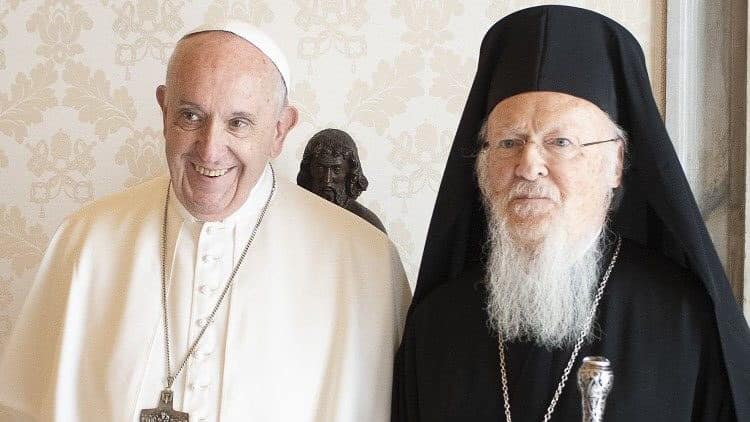 On 22 October 2021, His Holiness Pope Francis sent to His All-Holiness Ecumenical Patriarch Bartholomew the following letter of congratulations on the occasion of the 30th anniversary of his election as Archbishop of Constantinople and Ecumenical Patriarch:
On 22 October 2021, His Holiness Pope Francis sent to His All-Holiness Ecumenical Patriarch Bartholomew the following letter of congratulations on the occasion of the 30th anniversary of his election as Archbishop of Constantinople and Ecumenical Patriarch: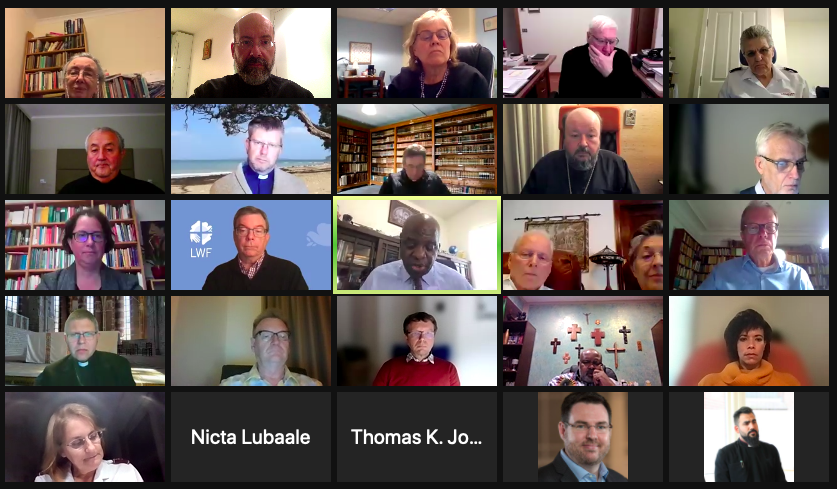 The Annual Conference of Secretaries of World Christian Communions met online on 12-14 October 2021 due to the pandemic of COVID-19. The annual Conference of Secretaries of World Christian Communions brings together representatives from diverse Christian traditions to exchange information and to discuss their work and fellowship together.
The Annual Conference of Secretaries of World Christian Communions met online on 12-14 October 2021 due to the pandemic of COVID-19. The annual Conference of Secretaries of World Christian Communions brings together representatives from diverse Christian traditions to exchange information and to discuss their work and fellowship together.